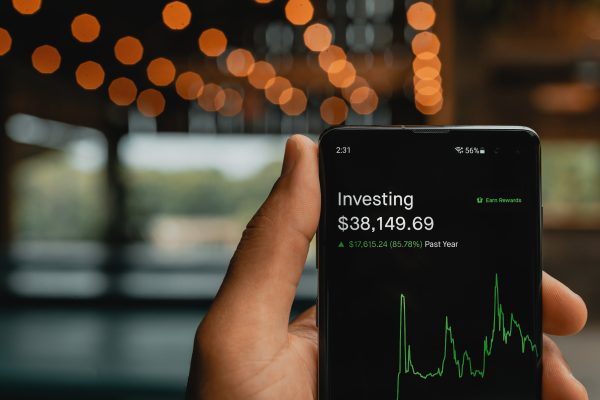What IFG will do to help bring about a truly Islamic economy


Ibrahim Khan
Co-founder
8 min read
Last updated on:
Many of you will know what the IFG/Cur8 mission is: to help Muslims level up financially.
But in this short piece, we wanted to share with you a little more in-depth with you how we think about practically bringing that goal to life.
And, as we enter 2024, we will also share with you where our priorities will be as an organisation over the coming year.
We are aware that most organisations do not share their strategy like this – but we think our mission – which is an economic mission – is a shared one that needs multiple actors to play their part.
We therefore share this in the spirit of transparency as well as a challenge: we hope others will pick the various bits of the puzzle we are not addressing and run with it.
What do we want?
We want to get to Jannah and we do that by fulfilling the rights of God and the rights of His servants.
The rights of God and his servants are most effectively fulfilled in a society that is governed and crafted in the manner He demands.
There are multiple facets to this desired end state but one of the critical ones is the financial and economic layer.
Three themes characterise the truly Islamic economy (the “Goal”):
- Submission to God (“Submission”)
- Flourishing of humanity (“Humanity”)
- Helping those less fortunate (“Charity”)
| Themes | Manifestations | Which group is primarily responsible to deliver this? | ||||
| Submission | Education | Da’wah | Family values | Political clout | Worship | Civil society |
| Humanity | Climate | Healthcare | Work | Play | Defence | Business |
| Charity | Food | Water | Climate | Shelter | Job | Charities |
This is a society where Submission, Humanity and Charity are supreme goods that are maximised at every turn.
Human beings conduct themselves based on justice, promoting family, with knowledge, and in a state of submission to God.
This is not a perfect society – no society ever is – but it is a society that values the right things, has people who have their hearts in the right place as well as the skill sets to be able to turn the arc of history in the right direction.
And note, when we say “Islamic” economy, what we mean is something that reflects the values of Islam which, in this context, are fairness, transparency, sharing risk, etc. These are values which, embedded into a financial system, would be good for the entire society – not just Muslims.
IFG’s focus
IFG is an investment/finance platform and focuses on those areas it can best contribute to, to bring about the Goal.
Our diagnoses of the issues are detailed in this whitepaper, but in short, (a) the monetary system we operate in incentivises debt and money creation in ways that lead to deep and troubling economic inequity, and (b) the capital sat in the Islamic financial system is particularly concentrated in rent-seeking pots as opposed to at-risk pots looking for capital growth.
This leads to a spiralling system of inflation, money creation and debt on the one hand, and inefficient allocation of capital on the other.
We see there as being three major economic changes that need to happen to bring about the Goal:
- A fairer financial system (“Change 1”)
- An innovation economy not a rent-seeking economy (“Change 2”)
- Profit-making entities to transfer wealth to NGOs responsible for non-profit-making work (“Change 3”)
Change 1: A fairer financial system
A fairer financial system requires us moving to a different monetary system. That in turn requires either:
- The banks change
- The people change
- Both change
To achieve that we need a massive mindset shift which will require significant arguments and pressure through:
- Media
- Politics
- Scholars
- Academia
All of these routes amplify the simple message “our financial system is broken and unfair. It doesn’t have to be this way. We need a new monetary system that is fairer.”
In parallel, alternative monetary system projects like:
- Centralised methods of money creation (rather than devolved methods to private banks)
- Promising blockchain-based projects
- Tokenisation/digitisation/walletisation of gold
- And other alternative money projects
Should be backed, supported and incubated. They may or may not be needed but it is important to develop them and, who knows, if one of them takes off, the people will have voted anyway and the old monetary system just gets side-stepped.
A small, but emotionally important part of the change will be in the Islamic financial system and the products the Islamic finance industry uses. Sharia wrappers, commodity Murabaha and other compromise products should become a relic of the past as they will no longer be needed in this brave new world.
IFG sees its role here as:
- Educating and raising awareness of the matter
- Lobbying government and political parties
- Allying with others of a similar mindset to create a broader coalition
- Encouraging and supporting academics to research and deepen the academic underpinnings to this movement
- Encouraging Islamic and mainstream banks to migrate to more Islamic products and showing the art of the possible
IFG does not currently see its own role as actively working on an alternative monetary system as this is not where we think we can most add value with our skillsets and resources at this moment in time. We think our role as enablers, influencers, connectors is likely to be far more impactful in bringing those to the table who have the determination and skill sets to work on this strand substantively.
Change 2: An Innovation Economy
Much of Islamic financial wealth is unfortunately sat in low-risk fixed income or bank deposit products. These investments are rent-seeking investments rather than growth-seeking, innovation-seeking, problem solving investments. We explored this issue previously in this whitepaper.
But imagine a world where much of that capital was now being invested in cutting edge technology as well as growing businesses across the world. Project that forward over 10 years and that same capital will have had a much better economic return as well as a much better impact return as well.
Imagine a world where:
- Large, listed businesses are run by God-conscious leaders who operate on Islamic ethical principles. No need for a 30% debt-to-asset ratio.
- Where banks have been so incentivised to move away from debt that they are primarily investment banks – the kind that actually do investments.
- Where Muslims have contributed to solving some of the most pressing problems of the age through innovative technology businesses.
So we need to move this capital from where it is today – the banking system, property, and arbitrage seeking investments – to investing in all kinds of businesses, with an emphasis on technology-related and innovative businesses.
The enabling steps to achieving this are:
- Step 1: Islamic wealth management focused on impact and business (to connect capital up with those who need it so sharia-compliant businesses can grow)
- Step 2: Entrepreneurial Muslims with the right skillsets and vision (to create projects and businesses that are investable – and keep their virtue while doing it)
IFG sees its focus at this moment to be on (1) alone, though it aspires to one day also help support (2).
Practically this means:
- Cur8 Capital must maintain a sizeable exposure to private equity, venture capital and SME-financing investment strategies across its collective AUM.
- Cur8 Capital must support third parties or internally deliver world class (sharia-compliant) VC and PE investment strategies that prioritise investments in diverse founders and Muslim-majority countries.
In order to have the scale Cur8 must do to achieve the goals we have set out, we should be at least a top 20 asset manager globally. That requires us to hit at least $1 trillion in assets under management.
| Phase | 1 | 2 | 3 | 4 | 5 |
| Target AUM | $100m | $1bn | $10bn | $100bn | $1tn |
| Strategy | Generate free cashflow, and reinvest it into improving and expanding delivery of Step 1 | Generate further free cashflow and reinvest into delivery of Steps (1) and (2). | Generate further free cashflow and reinvest into delivery of Steps (1) and (2). | Generate further free cashflow and reinvest into delivery of Steps (1) and (2), as well as bringing about a fairer financial system. | Generate further free cashflow and reinvest into delivery of Steps (1) and (2), as well as bringing about a fairer financial system. |
| Change Focused on | Innovation economy | Innovation economy | Innovation economy +Fairer financial system | Innovation economy + Fairer financial system | Innovation economy + Fairer financial system |
Change 3: Sponsoring the NGOs
IFG is only working on one small bit of the puzzle. We are not addressing the spiritual work that needs to be done. We are not leading the political efforts that need to take place. In academia, in the media, and in the arts we are not there.
But IFG (and all for-profit organisations) still has a critical role to play in enabling all the non-economic work too: providing the finances to enable the work to take place.
As long-term followers of IFG will know, over the last two Ramadans we have released Ramadan charity guides to help donors navigate the myriad charities out there with a particular emphasis on local giving, impactful giving, and diversifying our donations to areas that are otherwise overlooked.
We have shared our detailed thoughts about the charitable sector and how we should give here.
In 2024 we will, by the will of God, be working on launching the IFG Impact Zakat Fund (subscribe to our mailing list to follow along for more). The focus of this Fund will be to deploy zakat and sadaqah money towards high impact causes that we can materially shape and benefit in ways other than just the money.
2024 Goals
On the basis of the gameplan set out above, here are our priorities for 2024:
- Do the bread and butter of our work right. Great customer experience investing into a variety of well-diligenced and well-managed investments.
- Investment focus on private equity and business financing in its many forms.
- Put in place a recurring mechanism that enables our investors to donate to high-impact causes.
Our request to you
We would love your feedback and reactions to this as ever. Drop us a line via our contact us form.
Please also hold us to account if you feel we are straying too far from this outlined vision and gameplan.
And, as ever, please keep us in your duas.
Comments (0)
Related Articles
View all
Is your Pension worth a Human Life?
30 October 2023 4 min read

Stock Market Rally: What does it mean for your portfolio?
21 July 2023 6 min read



Leave a Reply